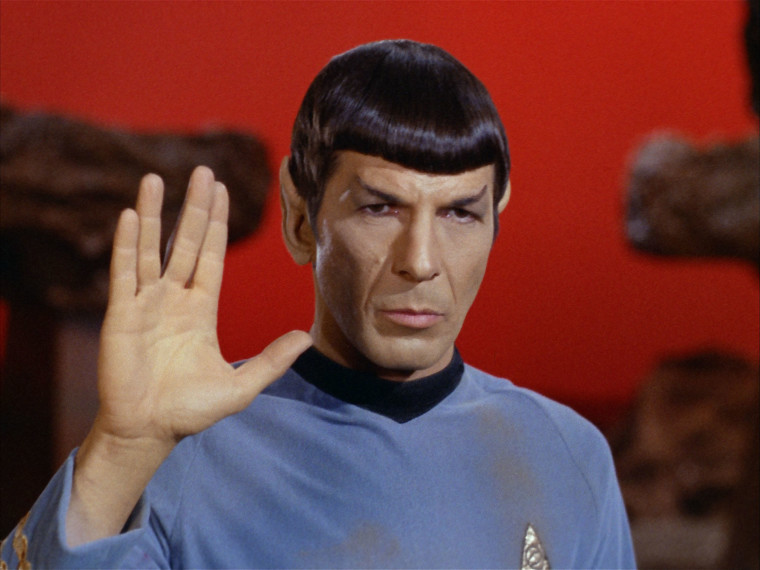I grew up a fan of Star Trek. As a kid, I loved the action and adventure. As an adult, I loved the powerful messages told through the action and adventure. Last week, Leonard Nimoy who played the iconic Mr. Spock died. I have so many memories growing up watching Kirk, Spock, and the rest of the Enterprise crew. In many ways, I think Nimoy and Spock were both among the most complicated characters in the Star Trek universe, which also accounts for how much both actor and character were beloved. However, Nimoy held a love/hate relationship with the character largely as a result of the power of typecasting.

Nimoy had a hard time separating himself and his career from the character of Spock. He even wrote a book in 1975 entitled, “I am not Spock.”
The challenge Nimoy faced was always been seen as the cool, logical, Mr. Spock which limited the roles he could play in the future.
Over the years, however, he came around to embracing the typecast of Spock and wrote a second book, “I am Spock.”
In thinking about Nimoy’s life and career, I believe there are some lessons in how he faced and dealt with being typecast or stereotyped.
We know the problems of stereotyping students. Students that are asked to speak for their entire race in class discussions or assumptions that a student of color is an athlete. These stereotype are hurtful and are representative of a campus culture that needs better inclusivity.
These are the same reasons that Leonard Nimoy had to write his first book. He needed to explain how he was more than just the stereotype/typecast. By all accounts, he was very different from Spock with a wonderful sense of humor that the Vulcan would never have appreciated.
We have many students on campus that are stereotyped. Minority students, low income students, or students that need remedial help all feel stereotypes. Question of class and privilege are pervasive and require continual effort to improve.
This is a key lesson from the career of Leonard Nimoy.
I am also struck by the second book and other interviews where he came to embrace the typecast. He would often say that in hindsight he found the typecast to be somewhat useful. Casting directors and producers had a sense of who he was and what he could do as an actor.
The typecast also helped him know what parts that he would be able to embrace and those that were outside of his comfort zone. It didn’t mean he wouldn’t do a part that wasn’t Spock-like, but it proved to be a useful measuring stick.
Sometimes, I find it useful to typecast students. Like Nimoy, this doesn’t mean that I only consider them as their stereotype, but I do find it helpful to give me an initial impression. For example, when reading admissions files, I often try to equate a prospective student to one that I have worked with in the past. This helps me visualize what a person might be like in the program. In class, I do something similar. I draw some initial impressions and typecast students related to those I’ve worked with in the past. Sometimes these initial typecasts are wildly inaccurate, but they are somewhat helpful in thinking about a person and building connections in my own mind.
Although typecasting and stereotyping can certainly present problems, I would argue that there is are some initial benefits as long as you are open and consistent in constantly reevaluating your impressions. Ultimately, we have to remember the power of typecasting can be used for good or evil. I look forward to hearing your reactions to this post. In the meantime…
Live long and prosper.

